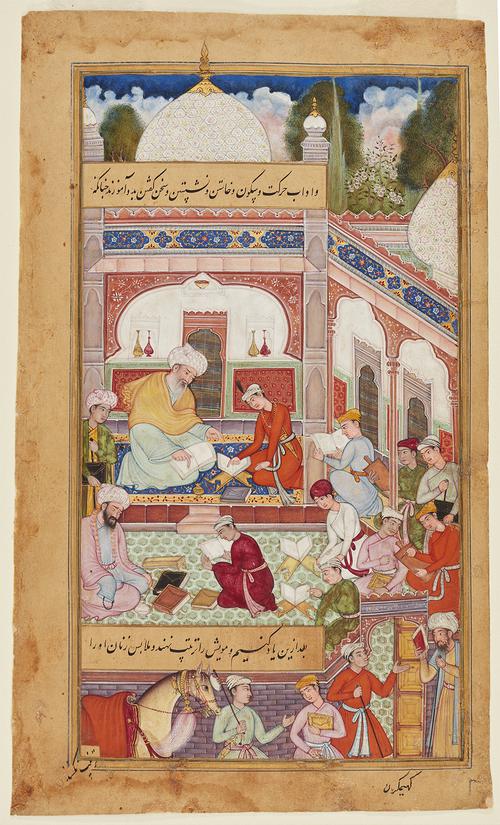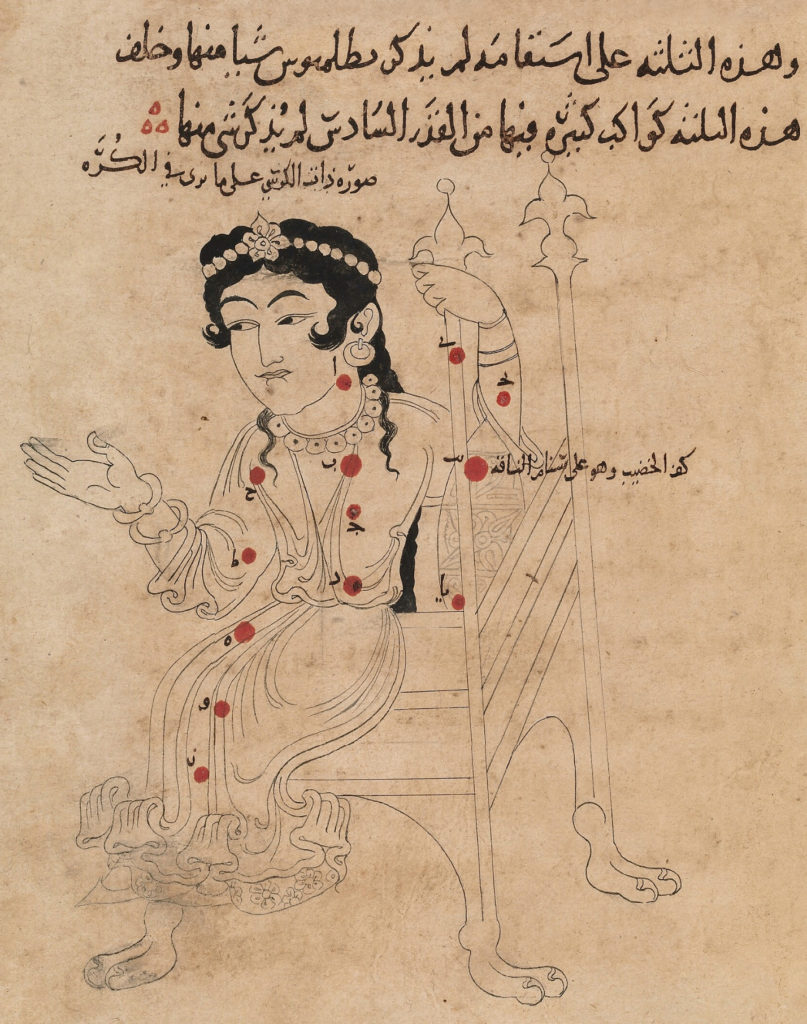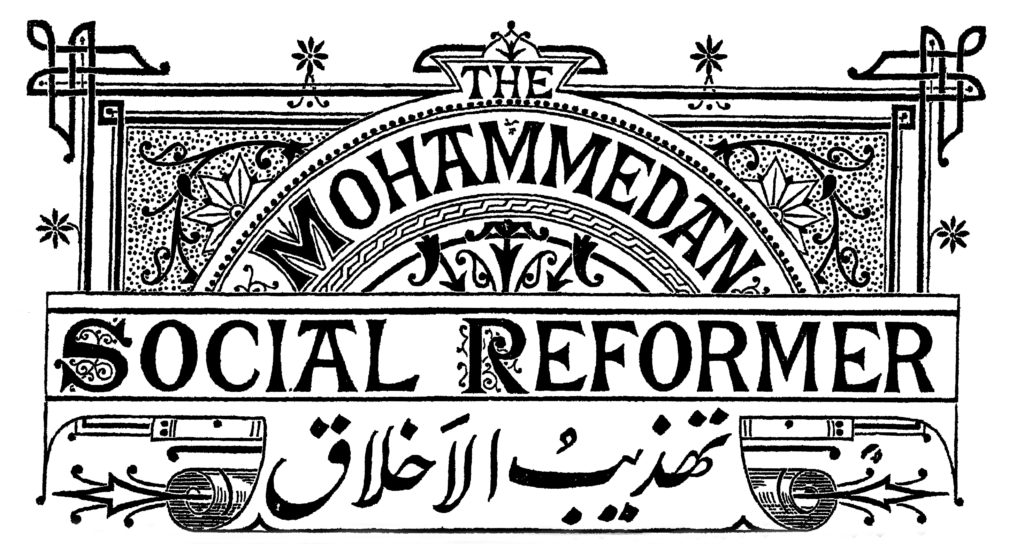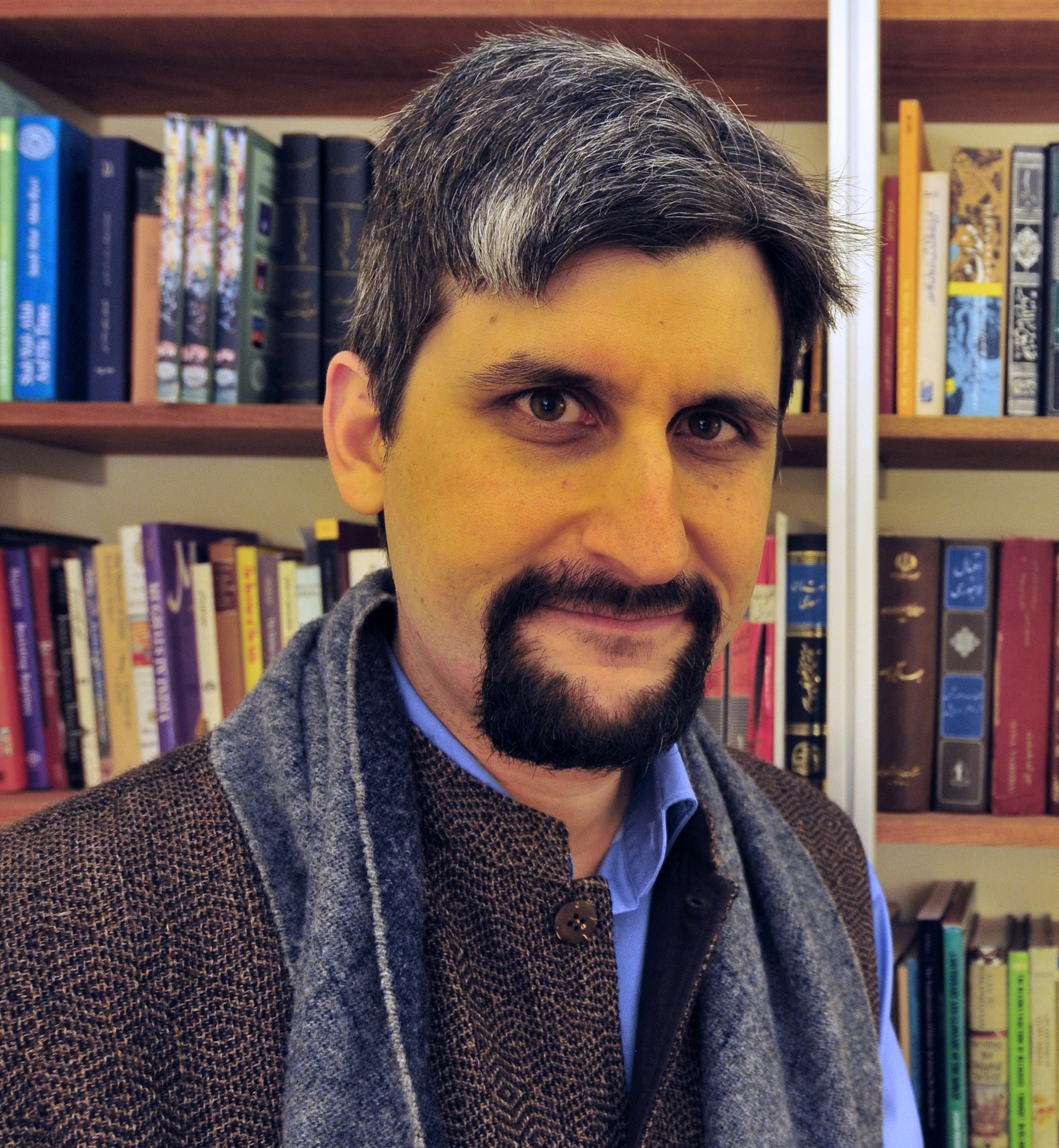
“If everyone were equal, it would end in their demise.” So claims Nasir al-Din Tusi, the famed Iranian philosopher from the thirteenth century. Tusi found this maximum to be particularly insightful and wove it into his influential manual of ethics. This idea, that social stratification is a necessary condition for human flourishing, stretches back to the teachings of Plato and Aristotle. The belief in hierarchy as a bedrock for political order is an abiding feature of classical moral philosophy. A perfect state of society can only be obtained through a progressive series of hierarchal orders, the philosophers explain. Not only is the superiority of a male elite unquestioned it is celebrated and feted. As a man rules his home, so does a ruler govern society. Thus proceeds the syllogistic logic of the body politic in classical virtue ethics.
Needless to say, much of this thinking would appear to be anathema to liberal sensibilities, steeped in values of egalitarianism and equality—for all their contradictions and unrealized aspirations. Yet ideals of hierarchy and mastery have also proved to be rather useful in the uneven legacies of liberalism, of freeing others through conquest. The specter of liberty brought by the empires and markets of colonialism has made the prospect of fathoming the difference of the past a rather vexing endeavor.
Historically, Muslims, like both Jews and Christians, drew copiously from the well of Greek learning as a font of science and wisdom. One of the many bequests of classical moral philosophy is the assertion that social hierarchy is the natural state of God’s creation. In the development of Islamic thought, philosophers and intellectuals frequently turned to the unequal conditions and capacities among humans as confirmation of a grand chain of being that connected the quotidian minutia on earth to the sublime heavenly orbs above. In this, Muslim authorities shared in a universal field of science and philosophy that sought to account in taxonomical form for the entire order of existence, emanating from God through the tiniest particles of being.
Over time, such cosmic orders proved quite useful when justifying the status of those in power. For classical virtue ethics, the metaphysics of hierarchy served to advance male dominance and patriarchal rule as a natural basis for domestic order and political life. Zahra Ayubi traces the genealogies of these ideological formulations in a lucid and thought-provoking study focused on canonical Persian works from the tradition of classical Islamic moral philosophy. Along the way, Ayubi develops a feminist reading and critique of the gendered dynamics that govern the conditions for human happiness and the language of reform.
Ayubi leads us through an influential corpus of ethical writings on akhlaq, the natural traits or characteristics of individuals, by the likes of Ghazali, Tusi, and Davani. These widely read works on moral philosophy offered practical advice for improving the self and society through the corporal and intellectual disciplines of moral refinement. As an indication of the deep connections with classical philosophy, the category of akhlaq is itself a calque of the Greek plural ethe and with it the field of ethika, which historically was also implicated in the project of promoting and affirming male privilege. In her own readings of these ethical manuals, Ayubi consciously follows the footsteps of earlier feminist philosophers, such as Luce Irigaray and Martha Nussbaum, who have asked what, if anything, can be recovered from the ancient writings of a male elite who sought to anchor their own authority in the transcendent power of cosmic order.
Taming the Body
For the diverse moral economies of liberalism, a good deal in this ethical universe may stand out as elitist, racist, and sexist. This extends beyond merely the unquestioned centrality of the male subject to the entire body politics of perfection towards which these works progress in teleological fashion. Perfection is the name of the game. In the framework of Aristotelian ethics, the idea of telos, as both end and completion, carries a special importance. It is directly related to the central concept of entelecheia, the work of bringing into full actuality the ideal self through a process of self-fulfillment. It is a concept generally rendered in Arabic and Persian as takmil, perfection, completion, and actualization.
As a discourse of perfection, these writings privilege above all a male subject whose body is marked for purification. The marginalization of women from this discipline of self-actualization is not an accident, but rather a structural feature designed to promote men as vessels of power and as models of divine rule. Despite all this, classical Islamic moral philosophy also cultivated and valued social justice. Yet as a system of thought that approached equality not as a desirable virtue but as a dangerous imbalance, the ideal of what constituted justice in these works does not easily accord with today’s language of universal human rights and civil liberties.
As with Plato’s yoking together of soma and polis, the metaphor of the body politic is a central feature of these writings on hierarchical order. It is a conceit with incredible traction. “The excellent city is like a perfect, healthy body whose limbs all work in concert,” explains the early Muslim philosopher Farabi. Like Plato, Farabi viewed the perfect state as governed by an enlightened ruler who could lead and guide all classes of society, from the ignorant masses to the educated elite. In the ideals of classical Islamic moral philosophy the apex of social order is identified with men—generally in the form of an imam, caliph, or a group of wise authorities—who, through the discipline of the soul and the power of the intellect, have obtained extraordinary states of knowledge and wisdom that far surpass what ordinary people can achieve. Justice, in such a framework, is maintained not through insuring equality of rights or the protection of liberties, but by balancing the diverse and unequal factions of society in complete harmony, where individuals know their place and act according to and within their own capacities.

Importantly, the metaphysical structure undergirding this system of thought is designed to describe in scientific and rational terms the physical powers of prophecy as located in the nafs, or soul, the psyche of Greek philosophy, which in turn serves as the cognitive basis for human reason. The epistemic foundations of classical Islamic moral philosophy rest on the cosmic force of the divine soul as it emanates throughout all existence. These teachings form the keystone in the metaphysics of Ibn Sina, whose work indelibly shapes the tradition of virtue ethics that Ayubi explores. Here the hierarchical gradation of intellectual capacity, as determined by the mental faculties of the soul, is used to explain the natural foundations of prophecy, miracles, and magic. In such a schema, the Prophet, as the total, complete, and perfect human, represents the pinnacle of human potential, the ideal lawgiver, and the consummate model for dignity and happiness.
This corpus of writing promises individual and social improvement and refinement. As Tusi notes in the opening to his widely read manual of ethics, while theoretical philosophy culminates in the abstract analysis of the soul as a force in nature, practical philosophy teaches how to harness and actualize the psychic power of the intellect. Starting with tahzib al-akhlaq, the individual refinement of character or virtues, the path of perfection then turns to the organization of domestic economy and finally ends in the study of good governance. This ultimate field focuses on siyasa, not in the sense of politics, which is what the word generally conveys in modern Arabic, Persian, Turkish, and Urdu, but with the meaning of discipline and punishment, as in the classical Persian expression siyasat kardan, to discipline or punish and thereby to rule. The coercive power governing the home and the state is meant to keep subordinates in place.
As Ayubi demonstrates time and again, the gendered values that animate this system of applied philosophy advance the authority of an ideal male subject as the head of the family and as the leader of society. These works speak in a language of mastery. It is a mastery born of discipline and control through the refinement of comportment, thought, and language. Ethics and etiquette intermingle in the staging of adab, a general term for educated decorum and refined speech. Mastery of language as a normative condition for maturity and manliness is a frequent trope in these appeals to moral refinement.
In Polite Society
The universal claims animating this philosophy of the good life lent themselves to countless audiences. As a testament to their popularity, many of the works that Ayubi considers were deployed in Ottoman, Safavid, and Mughal administrative education. In South Asia, this meant importantly readerships of Muslims and Hindus alike—Kayasthas and Khatris in particular. These diverse readers highlight, above all, the appeal of akhlaq literature to a natural order that transcended sectarian divides, pointing to a kind of a universal, if not secular, sphere of learning and knowledge before the advent of colonialism.
In the course of early Islamic reform movements, practical moral philosophy played a rather outsized role. As a means of reviving the body politic in the face of European colonialism, the classicism of tahzib al-akhlaq, the refinement of morals, could appeal to an internal discourse on education and self-improvement. As Ayubi notes, the phrase famously served as the title for the reformist Urdu gazette founded in 1870 by Sir Sayyid Ahmad Khan. The English header for Sir Sayyid’s journal, The Mohammedan Social Reformer, announces exactly what tahzib is meant to convey: a process of refinement, purification, and polishing, through a discipline of correcting and improving the morals of society. The term carries a sense of honor and good manners. So too did tahzib come to serve in Urdu as a direct translation of the rather novel English word “civilization,” in the moral sense of cultured, and in direct opposition to the barbaric and semi-barbaric (wahshi-o-nisf wahshi). In this regard, Muslim reformists closely followed colonial discourses on the improvement of society by drawing on an autochthonous language of rectification and refinement, with the control of women’s bodies occupying a central concern.

With appeals to universal order and refined etiquette, it should come as no surprise that Orientalists also turned to collections on akhlaq, often for the purposes of Persian language instruction. The continued centrality of virtue ethics for edification can be traced back to early colonial contacts. For example, Sir William Jones lavishes praise on Kamal al-Din Kashifi’s Persian collection of morality tales in his Grammar of the Persian Language (1771), a work prepared for the instruction of officers and other servants in the employ of the East India Company. In 1821, a bilingual English and Persian selection from Kashifi’s popular compendium was published so as to be “attentively studied during the passage to India.” British orientalists translating akhlaq materials as employees of the Company—often with the aid of their moonshee or “intelligent native”—were quick to recognize a common basis of ethical knowledge rooted in Greek philosophy, which in turn offered commonalities not only in moral and epistemic terms, but also in the rareified field of science itself. Given their administrative use, this body of ethical literature also came to serve a curricular basis for civil and military service in the East India Company and then, after the Government of India Act of 1858, as part of the Indian Civil Service of British India. The pedagogical use of these materials for language instruction is rather suggestive, as the focus on self-discipline also coincides with the Orientalist enterprise of mastering and standardizing the language of others.
In addition to aspirations of mastery, European writings from the period on moral philosophy and political economy, by the likes of John Stuart Mill, also found common cause in the metaphor of a “political” or “social body.” While a body can decay, so too can it be purified, disciplined, and improved. As a concept, the body politic, however, has notable limitations. Foremost, it has often served to naturalize group identities, while obfuscating the circulation of power, such that social hierarchies are readily justified and imbued with cosmic and ethical significance of a transcendental magnitude. This kind of reasoning generally papers over the very ideological work at the heart of group formation. All imagined communities necessitate an ideological, if contradictory, heterogeneous, and conceptually impossible, means of identification, of who we are, where we have been, and where we are going, in the associative bonds that draw us together and pull us apart. The facticity of group identities, in this regard, is a product of ideation, not of crude determinism.
Politics of Imperfection
While colonial agents were often mouthpieces for various forms of liberalism, they were also keenly invested in cultivating hierarchies of race, class, and gender, which they used to divide up the world between the civilized and the savage. The logic of the civilizing mission justifying global European hegemony generally predicated the inherently unequal status of humans. In such equations, Islam long stood as a foil to the forward march of history, a withered and decayed hand of oppression shackled by superstition and ignorance. For the rights based ideology of secular liberalism, as Joseph Massad contends, Islam has frequently betokened the irrational, illiberal, tyrannical other, inimical to the forces of freedom and self-fulfillment.
In the waves of reform and post-colonial resistance, with the rise of liberation theology and the development of Islamic feminism, there have followed countless efforts at locating and recuperating egalitarian values in the foundational sources of Islamic authority. Yet Ayubi observes, referencing the work of Ayesha Chaudhry on domestic violence and the Qur’an, the interpretive procedures for identifying messages of gender equality in these materials are anything but straightforward. Indeed, like all forms of reading the past, such hermeneutical maneuvers are by necessity anachronistic, that is, they are shaped by the vocabularies, desires, and values of the present, as well as by the potential of what can actually be thought or said. While today one may point to numerous sources for egalitarian thought in the wide course of Islamic history, such gestures are inevitably made and conditioned in the shadow of liberalism. As an ideological formulation, liberalism’s promise of freedom presents itself as the perfect and only conceivable basis for human flourishing.
Yet, perfection is no easy state. Everything is in flux, constantly changing and reforming. The discipline of the self is never complete, just as group formation is a continual work in progress. Perfection is an ideological position, not a state of being. A politics of imperfection, as Leela Gandhi calls for in her transnational history of democracy, proceeds from the messiness of material conditions and the heterogeneous identities and values that guide us all, following the empathic possibilities of thinking otherwise. In contrast, the disciplines of perfection have always spoken in the name of mastery, be it over language, with the fine line of a diacritical mark, or over bodies, in the master who stands in for and silences another.


are we projecting through an imperfect state to god who is in a perfect state? God is in a perfect state projecting through imperfection, we come from the source. So when we try to reach the source it is much harder for us to do so.